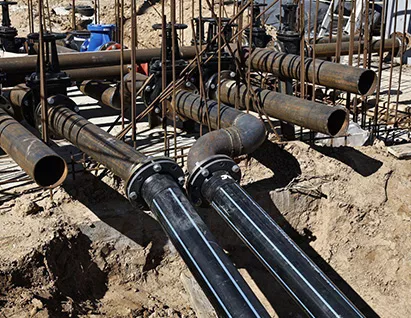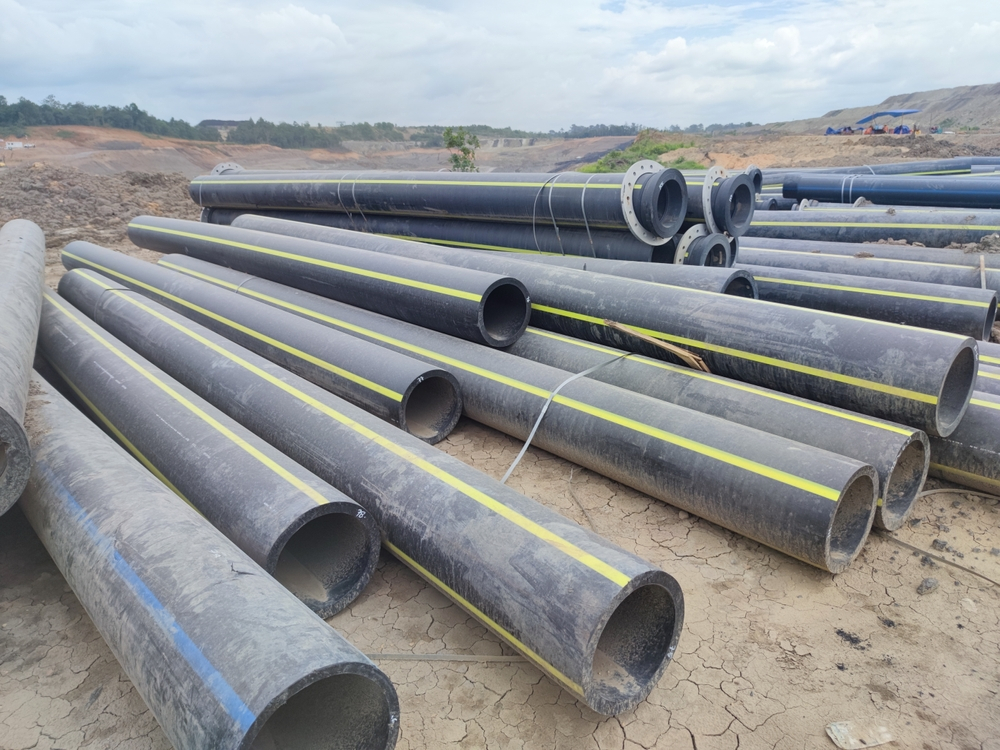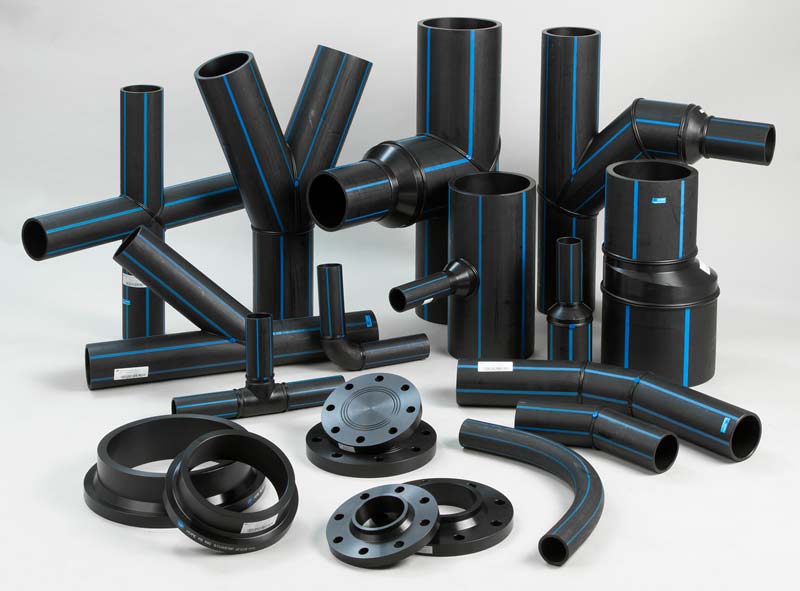Pipeline Manufacturer best practices for testing
Wiki Article
Pipeline Manufacturer Spotlight: Discover the Finest in the Sector for Your Next Project
In the domain name of pipeline manufacturing, the selection of maker can substantially affect the result of your project. With a variety of firms using innovative options and advanced products, comprehending the vital criteria for selection becomes necessary. Sector leaders like Tenaris, Vallourec, and United State Steel go to the center of giving sustainable and reliable options. However, the question remains: what specific factors should guide your decision-making process, and just how do these suppliers separate themselves in a significantly open market? Checking out these elements may disclose insights that could affect your following project's success.Sector Introduction
In the pipeline manufacturing industry, there exists a dynamic interaction of technological advancements and governing demands that shapes sector methods. This field is crucial for the transportation of oil, gas, water, and various other liquids, necessitating a durable understanding of both material residential properties and environmental influences. Manufacturers are progressively incorporating sophisticated products and ingenious manufacturing strategies to enhance the longevity and effectiveness of pipes, guaranteeing they can stand up to varying pressures and ecological conditions.
On top of that, the rise of electronic innovations has changed conventional manufacturing processes, permitting improved monitoring and anticipating maintenance. This change not only boosts functional efficiency yet likewise helps in minimizing prospective failings before they rise into critical concerns. In general, the landscape of pipeline manufacturing is identified by a continuous advancement driven by development and compliance, positioning the industry for future growth and sustainability.
Trick Requirements for Option
Choosing the appropriate pipeline producer entails careful factor to consider of several essential standards that assure dependability, efficiency, and compliance with market criteria. Assess the maker's experience and online reputation within the industry. A well-established business with a tried and tested performance history is most likely to provide high-grade product or services.Next, examine the series of specifications and materials offered. Manufacturers ought to supply a range of alternatives that satisfy varied task demands, consisting of various pipeline dimensions, products, and finish systems. Conformity with pertinent sector criteria, such as ASTM or API, is crucial, as it assures the items fulfill safety and security and efficiency standards.
Furthermore, think about the maker's technical abilities. Advanced production techniques and quality assurance actions can greatly influence the longevity and efficiency of the pipelines. Client service and assistance are likewise important; a knowledgeable and receptive team can promote smoother project implementation and resolve any kind of problems quickly.
Evaluate pricing frameworks and lead times. While cost-effectiveness is necessary, it ought to not endanger high quality. Balancing these standards will bring about a knowledgeable decision that lines up with project objectives and regulatory demands.
Top Pipeline Manufacturers
In the affordable landscape of pipeline manufacturing, several market leaders stand out for their ingenious technologies and dedication to sustainability. These top makers not only master supplying premium items but likewise focus on environmentally liable practices in their operations. A review of their contributions supplies beneficial insights right into the future of pipeline remedies.Industry Leaders Introduction
Just how do industry leaders shape the pipeline manufacturing landscape? The leading pipeline manufacturers play a crucial duty in establishing industry requirements, driving innovation, and guaranteeing quality control throughout the supply chain. Firms such as Tenaris, Vallourec, and U.S. Steel have set criteria for safety, sustainability, and efficiency, affecting not simply their procedures yet additionally their rivals.These leaders spend considerably in r & d to enhance product toughness and performance. Their dedication to sticking to regulative compliance and worldwide standards fosters consumer trust and encourages industry-wide fostering of ideal methods. In addition, they usually team up with stakeholders, consisting of engineers and construction firms, to assure that their items satisfy specific project needs and ecological considerations.
Market leaders also focus on client relationships, using tailored solutions and remarkable solution, which enhances their market position. By leveraging economic situations of scale, they can deliver affordable pricing without endangering quality. Inevitably, the influence of these suppliers prolongs past their items; they form the future of pipeline innovation and manufacturing procedures, ensuring a lasting and durable framework for different markets worldwide.
Ingenious Technologies Offered
What ingenious innovations are transforming the pipeline manufacturing sector? Over the last few years, top pipeline suppliers have embraced innovative technologies to improve performance, reliability, and security in their procedures. One significant development is the combination of clever pipeline monitoring systems, utilizing Web of Points (IoT) sensing units. These systems provide real-time data on pipeline conditions, allowing aggressive upkeep and reducing the risk of leaks or failures.
Furthermore, makers are increasingly adopting advanced materials, such as composite pipes, which provide improved durability and resistance to corrosion. These materials not only extend the lifespan of pipelines but also decrease operational costs in time. Additionally, additive manufacturing, or 3D printing, is revolutionizing the production procedure. This technology permits rapid prototyping and customization of components, streamlining supply chains and reducing waste.
Artificial intelligence (AI) and artificial intelligence formulas are additionally obtaining grip, maximizing style processes and predictive upkeep timetables. By examining large datasets, these innovations help identify prospective concerns prior to they develop, boosting safety and security and operational effectiveness. As these innovative innovations continue to evolve, they assure to shape the future of pipeline manufacturing, ensuring that tasks can be completed promptly and within budget plan while keeping the utmost safety and security requirements.
Sustainability Practices Highlighted
The ongoing innovations in innovative modern technologies within the pipeline manufacturing industry are enhanced by a growing emphasis on sustainability techniques among leading manufacturers. These business are increasingly embracing eco-friendly techniques, lowering waste, and reducing their carbon impacts throughout the production process.Leading makers are focusing on making use of recycled materials, boosting the lifecycle of their products. By executing closed-loop systems, they effectively make use of resources, thus lessening the environmental impact connected with basic material extraction and processing. Furthermore, lots of companies are investing in sustainable power resources to power their procedures, further decreasing greenhouse gas exhausts.
Pipeline manufacturers are embracing advanced coverings and materials that improve corrosion resistance and longevity, which ultimately reduces the frequency of substitutes and fixings. These lasting practices not just add to environmental stewardship but likewise straighten with the expanding regulative demands and market expectations for responsible manufacturing.
Cooperation with stakeholders to promote sustainability efforts showcases a commitment to a greener future. By concentrating on lasting practices, leading pipeline suppliers are not only enhancing their operational performance however also setting a benchmark for market requirements, promoting a more lasting pipeline framework for all.
Innovative Technologies
The pipeline industry is observing a transformative shift via the combination of innovative modern technologies, especially in advanced products development and clever pipeline monitoring systems. These developments not just enhance the durability and effectiveness of pipelines however additionally enhance safety and security and environmental stewardship. As suppliers embrace these sophisticated services, the future of pipeline framework looks increasingly appealing.Advanced Products Development
Advancements in advanced materials growth are revolutionizing the pipeline manufacturing market, driving improvements in efficiency, effectiveness, and longevity. The development of high-strength alloys and composite products has actually made it possible for the production of pipes that can endure extreme conditions, including high pressure and corrosive environments. These materials not only extend the lifespan of pipelines yet likewise minimize upkeep expenses, inevitably leading to enhanced operational performance.
Innovations in polymer scientific research have led to the production of light-weight, flexible piping systems that are less complicated to set up and carry. These advancements contribute to decrease carbon footprints in pipeline tasks, lining up with global sustainability objectives. Additionally, the assimilation of nanotechnology in material growth is opening brand-new avenues for improving the mechanical residential properties of conventional products, resulting in pipelines that can endure higher stress and anxiety while preserving honesty.
As producers proceed to purchase r & d, the pipeline industry is experiencing an unprecedented development in material capabilities. This emphasis on innovative materials not only sustains the expanding demand for trusted infrastructure however additionally cultivates a competitive landscape where business can separate themselves through exceptional item offerings. The future of pipeline manufacturing is absolutely linked with these groundbreaking advancements.
Smart Pipeline Keeping An Eye On Equipments
Smart pipeline monitoring systems are transforming the landscape of pipeline administration by incorporating sophisticated technologies such as IoT sensors, synthetic intelligence, and real-time data analytics. Pipeline Manufacturer. These systems allow operators to keep track of the stability and performance of pipelines continuously, significantly minimizing the danger of failures and leaksThrough the deployment of IoT sensors along pipeline courses, drivers collect crucial information on pressure, circulation, and temperature level rates. This data is sent in real-time to central tracking systems, enabling immediate analysis and action to anomalies. Advanced expert system algorithms evaluate this information to determine patterns, forecast possible problems, and recommend preventative actions prior to they escalate right into expensive issues.
The implementation of clever tracking systems not just improves operational effectiveness but additionally promotes conformity with regulative standards. By supplying comprehensive records and insights, these modern technologies support far better decision-making and danger monitoring. Furthermore, the assimilation of artificial intelligence abilities enables systems to enhance over time, adapting to transforming conditions and boosting predictive accuracy.
As the sector remains to accept these innovations, wise pipeline monitoring systems are poised to play a critical function in guaranteeing the safety, reliability, and sustainability of pipeline facilities. Pipeline Manufacturer.

Study of Success
Success stories within the pipeline manufacturing sector brighten the efficiency of innovative options and partnership amongst stakeholders. One significant case is the collaboration between a leading supplier and an oil business to implement a modern wise pipeline surveillance system. The job considerably minimized leak detection times and boosted operational performance, showcasing the value of sophisticated technology in improving safety and minimizing costs.One more instance involves a maker that successfully integrated lasting materials right into their pipeline construction. By working together with study institutions, they established a composite product that is not only durable yet additionally eco-friendly. This technology not only satisfied regulatory needs however also attracted new customers looking for lasting solutions.
A pipe project in a challenging geographical region demonstrated the significance of flexible design strategies. The supplier teamed up with local engineers to develop a pipeline that might stand up to severe climate condition, inevitably protecting against solution disturbances and ensuring reliability for end-users.
These case studies exhibit just how critical collaborations, technological advancements, and flexible solutions in the pipeline manufacturing industry bring about effective job results, consequently strengthening the market's commitment to delivering premium infrastructure while dealing with client requires properly.
Sustainability Practices
As the pipeline manufacturing sector develops, the integration of sustainability techniques has come to be progressively important. Manufacturers are taking on green materials and procedures to reduce their ecological effect while keeping high requirements of quality and security. This change is driven by both regulative needs and a growing recognition of environmental duty among stakeholders.
One famous technique is the use American Plastics LLC HDPE Pipeline Manufacturer of recycled materials in pipeline manufacturing, which decreases the need for virgin resources and reduces waste. Firms are also buying energy-efficient manufacturing strategies, thus decreasing their carbon impact during manufacturing. In addition, many makers have actually adopted water preservation techniques, ensuring that water usage is lessened and wastewater is dealt with efficiently.
Lasting transport methods are being utilized to provide products, consisting of maximizing logistics to lower emissions. The commitment to lifecycle assessments enables makers to review the ecological impact of their products from inception to disposal, promoting not only sustainability however likewise long-lasting financial stability.
Inevitably, the fostering of sustainability techniques in pipeline manufacturing signifies an important step toward aligning industry operations with global ecological objectives, making sure that future jobs are both responsible and cutting-edge - American Plastics LLC HDPE Pipeline Manufacturer. - HDPE Pipe Supplier
Future Trends in Pipeline Manufacturing
What developments are on the horizon for pipeline manufacturing? As the industry develops, a number of essential patterns are shaping the future of pipeline production. The combination of advanced products such as composite pipelines guarantees improved resilience and resistance to corrosion, thereby expanding the life-span of pipelines. These materials not just minimize maintenance costs yet additionally enhance safety standards.

Sustainability continues to be a vital emphasis, with manufacturers progressively focusing on eco-friendly practices. The advancement of eco-friendly products and the implementation of recycling programs are acquiring grip, straightening with international ecological goals.
Frequently Asked Concerns
What Materials Are Frequently Made Use Of in Pipeline Manufacturing?
Usual products used in pipeline manufacturing include carbon steel, stainless steel, polyethylene, and ductile iron (HDPE Pipe Manufacturing Texas). Each product offers unique benefits pertaining to strength, corrosion resistance, and suitability for different applications within the pipeline sectorHow much time Does the Pipeline Manufacturing Process Commonly Take?
The pipeline manufacturing process usually ranges from a few weeks to several months, depending on aspects such as material option, manufacturing capability, and personalization requirements. Effective preparation and coordination can significantly influence the total timeline.What Are the Many Typical Pipeline Sizes Available?
The most typical pipeline sizes range from 2 inches to 48 inches in diameter. Variability exists based on specific applications, industry standards, and local needs, making certain adaptability to fulfill varied job demands and operational needs.Exist Service Warranties Supplied on Pipeline Products?
Yes, many pipeline producers offer warranties on their items, commonly covering product flaws and craftsmanship. The duration and regards to these guarantees vary by manufacturer, so it is important to review details plans before acquisition.Exactly how Do I Guarantee Proper Installment of Pipelines?
To guarantee correct setup of pipelines, adhere to market standards, make use of qualified professionals, perform complete site assessments, apply quality assurance procedures, and protected conformity with policies. Regular assessments and maintenance better enhance pipeline efficiency and durability.Pipeline suppliers are accepting advanced finishes and materials that boost corrosion resistance and long life, which ultimately reduces the frequency of replacements and fixings. The pipeline market is witnessing a transformative shift via the integration of cutting-edge technologies, especially in innovative materials advancement and clever pipeline monitoring systems. As makers continue to invest in study and development, the pipeline market is observing an unmatched advancement in material abilities. Smart pipeline surveillance systems are transforming the landscape of pipeline administration by incorporating cutting-edge innovations such as IoT sensing units, artificial intelligence, and real-time information analytics. Yes, many pipeline makers supply warranties on their products, normally covering product defects and workmanship.
Report this wiki page